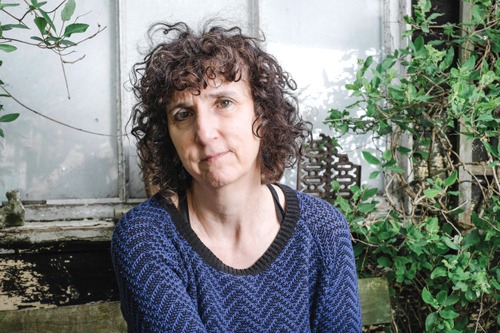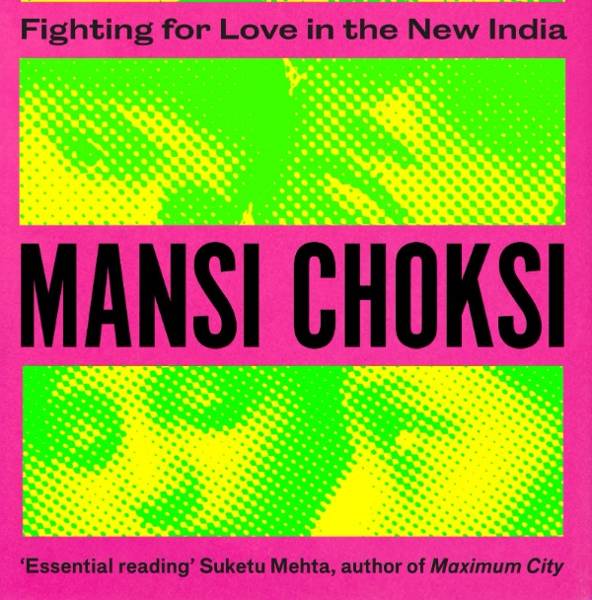
This article is a preview from the Summer 2015 edition of New Humanist. You can find out more and subscribe here.
Forgiveness, I believe, is one of the most problematic F-words in the dictionary. It wasn’t a word I ever gave much thought to until I was convicted of murder and sentenced to a term of life imprisonment that began in 1984.
I was five years into the sentence when a prison chaplain in a high security prison offered me forgiveness. Before prison I’d been a violent, ill-educated, rough-sleeping drunk. I began attending the prison chapel, looking for answers and perhaps to try and find some peace. I hadn’t been seeking forgiveness.
At the end of the service the prisoners were allowed to stand around at the back and share tea and biscuits and chat for ten or fifteen minutes before being escorted back to our wings. The chaplain had only been in post for a few months and this particular morning he was making himself known to us individually. After shaking my hand and engaging in a couple of minutes of small talk he suddenly made his offer. “God will forgive you,” he said. “If you are contrite and repentant – He will forgive you.”
I’d heard him on previous Sundays giving out a similar message in his sermons to all of us as a collective, among us convicted killers, rapists, terrorists and child abductors. I thought he was trying to sell us hope. I never took it seriously. To me it seemed a spurious message, especially since we were in a prison holding some of the most high-profile and serious offenders in the country. Committing crime, any crime, was to “sin” – and it appeared that as far as the church was concerned, so long as you were sorry, God would forgive you your sins. For me forgiveness was the sole prerogative of the victim. The idea of me, or any perpetrator, asking for forgiveness was tantamount to asking for a pardon, for approval, for an easing of the conscience. I liked the chaplain. He always gave his sermons without reading any notes, which convinced me that he believed what he was telling us. But the moment he offered me God’s forgiveness it took all my self-control to hold back my angry tongue.
I was released from prison in 2004 after serving twenty years to the day. That same year Marina Cantacuzino founded the Forgiveness Project, a charity that uses “real stories of victims and perpetrators to explore concepts of forgiveness, and to encourage people to consider alternatives to resentment, retaliation and revenge”.
Cantacuzino says she founded the charity because she wanted to tell the stories of people “whose response to being harmed was not a call for revenge but rather a quest for restoration and healing”. As a freelance journalist she had been writing about the struggles and triumphs of ordinary people for 14 years. She says that she became acutely aware that sharing the authentic voices of those who had lived through difficult experiences was far more effective than reporting on the views of experts and analysts.
Her recently published book, The Forgiveness Project: Stories for a Vengeful Age, brings together the personal testimonies of both survivors and perpetrators of crime and violence collated since those early years. It asks whether forgiveness may have more currency than revenge in an age “which seems locked into the cycle of conflict”.
I have met Cantacuzino a number of times over the last ten years and agreed to speak at her project’s 2012 annual conference, where I shared a platform with Marianne Partington, whose sister Lucy was murdered by Fred and Rosemary West, and Kemal Pervanic, a Bosnian concentration camp survivor. I found the prospect of meeting my two fellow speakers difficult. Both feature in Cantuzino’s book. Watching the calm and considerate way in which they shared their experiences, and observing their open-hearted attitude towards those who had hurt them – and indeed towards me – it was even more difficult.
When I arranged to meet with Cantacuzino at the British Library to talk about her book, I suddenly realised that although we know each other reasonably well, we have never sat down and had a conversation about forgiveness. Her unassuming manner belies the fierce energy and passion that drives her work. Cantacuzino’s exhibition, The F-Word, was originally supported by Dame Anita Roddick. It is a montage of narratives and images, exploring forgiveness in the face of atrocity, that has been displayed in over 550 venues across the globe since 2004. It is on permanent display in several countries including South Africa.
Her work is laudable, but the first thing I want to know when we do sit down is why anyone should forgive anyone who has hurt them? “Well,” she says thoughtfully, “Rosenberg, of Non-Violent Communication fame [Dr Marshall Rosenberg was an American psychologist who developed this model of peaceful communication in the 1960s] said that ‘should’ is the most violent word in the English language. The Forgiveness Project and myself personally come from a place of ‘no one needs to do anything; it’s worth looking at; it’s worth considering’. That’s why I say it’s a process of inquiry, exploration, discovery, as opposed to ‘if you don’t forgive you will be damaged in some way.’ I don’t think that is a helpful discourse.”
But does she believe that not forgiving might be damaging? “In some cases we feel the need to hold on to resentment, hurt and bitterness, but I think if you do there is a danger that you will damage yourself in the end. We’ve all got friends who can’t let go, who keep repeating the story. It becomes tiring and it drives you away. But I also think there are instances when forgiveness might not be the best choice. Forgiveness can divide families. It can be isolating. Some people want to forgive but can’t, they can’t move on. It splits society like a guillotine.”
Has she ever been hurt badly? “I was hurt badly in an emotional sense in a relationship. I went through the whole gamut of emotions. From wanting to kill someone in my mind, to recognising that I played a part and that it wasn’t an issue any more.” And did she forgive? “Yes, I did forgive. It’s a process. It takes a long time.”
I wondered what the motivation for forgiveness might be in the stories that she has chronicled. Altruism? Faith? “Some people are motivated by faith,” she says. “They feel a need to forgive because they believe it will be good for their soul or their well-being. For others it can be because they have reached the end of their tether, they are at the end of their resources and feel a need to do something differently.”
Empathy from victims towards perpetrators features in many of the stories in her book. Marianne Partington, for example, describes Rosemary West’s life experience as “the impoverishment of a soul that knew no other way to live than through terrible cruelty. A life deprived of truth, beauty or love.” While working in Bristol prison on a restorative justice project, she says she came to understand “that most perpetrators have been victims of abuse in childhood”.
Since then, she says she has strived to connect with the humanity of Rosemary West, who was sexually abused by her own brother, and abducted and raped when she was just seventeen. When people have asked Partington whether she is betraying her sister in doing this she answers: “No, absolutely the opposite. I feel I’m honouring Lucy by lining myself up for forgiveness.”
Kemal Pervanic was released from Omarska concentration camp after ten weeks of torture, during which he witnessed appalling atrocities carried out by people who had been his neighbours. (Alice Bloch wrote about Pervanic’s film, Pretty Village, in the Winter 2013 New Humanist.) In his blackest moments after his release he says he imagined killing his torturers and feeling nothing as he did it. “Such an act,” he says, “I knew would destroy me.”
Instead he forgave them, which brought him “a huge release” from the weight that he had carried on his shoulders for years: the memory of his perpetrators. “People describe these people as monsters,” he says, “But I don’t believe that. I believe every human being is capable of killing.”
Although Pervanic was a victim and I a perpetrator, I can relate to some of what he says. Part of my early prison journey involved regular interactions with a forensic psychologist. Her job was to assess my risk, my dangerousness, and to help me to work out how I had become who I had become. Over an 18-month period and maybe a dozen call-ups we had explored every aspect of my behaviour before prison, and in particular we talked about much of what had happened to me in my childhood.
Many times she told me that a lot of my later dysfunction was at least in part due to abusive and neglectful experiences I’d had in my formative years. I was responsible for my criminal actions. But the development of my character, she said, had been skewed by things that had been done to me by people who should have been protecting me and keeping me safe and secure when I was young and vulnerable. “That,” she said firmly, “was not your fault.” It took a while for me to accept that I too had once been a victim and when eventually I did, I struggled to contain my rage.
The psychologist said I had to come to terms with what I had done, and how I had become what I had become. She wasn’t offering me excuses, just a means of understanding. “You might like to consider forgiving those who harmed you,” she said. “It might help to calm your anger.”
Once I got my head around what she was suggesting I asked her how I might do that. “Do I pray? Do I get on my knees?” She told me I could try either, whatever I thought might suit me best. “Or you could just close your eyes and whisper, ‘I forgive you.’”
That night, in the darkness of my cell, that’s what I did. In an instant I felt the grip of those who had treated me badly when I was defenceless leave me. It was after that that I truly began to find a way to learn to live again.
One of the most intriguing stories in Cantacuzino’s book is that of Patrick Magee, who planted the 1984 Brighton bomb that almost wiped out the government of the day – and Jo Berry, whose father was one of the five people killed by Magee’s bomb. Within a couple of days of her father’s murder, Berry was determined to try and understand the motivations of the perpetrator. Although Magee was given a whole-life tariff, later reduced to 50 years, he was released from prison under the terms of the Good Friday agreement after serving just 14 years.
Using intermediaries, the two finally met at a neutral location in November 2000. Since then they have stood together on platforms in their shared mission of peace work. Magee supports Berry in her work with the charity she founded, Building Bridges for Peace.
Speaking to Berry, I am immediately struck by her tone of compassion. Has she forgiven Magee? I ask, and are they now friends? “I don’t really know what forgiveness is, although I think I have forgiven him,” she says. “Pat doesn’t think I have. But it’s so complicated. I care about Pat and he is a friend, although sometimes I can find it very challenging. Maybe that is forgiveness.” Although her father was killed more than thirty years ago I can still hear the pain of his loss in her voice. “I empathise with Pat, not all the time, I have to work at it. But when I am open and empathising with him it’s not even an issue,” she says.
When I meet with Magee, I’m struck by the quiet thoughtfulness in his answers to my questions. “I have never sought forgiveness,” he says. “I would never argue, why should anyone forgive me? What’s incredible about me and Jo is that we have this dialogue. I killed her father but she wanted to meet me. Despite the fact that I still stand by my actions we still meet and we still have dialogue.”
Magee says he decided in prison that he wanted to explore the idea of reconciliation with former enemies and it was in this context that he agreed to meet with Berry. He says in spite of all his prior intellectualising of the meeting, he was nervous beforehand. “I would say there was some fear,” he admits. In the book he says: “Someday I may be able to forgive myself. It’s rare to meet someone as gracious and open as Jo. She’s come a long way in her journey to understanding; in fact she’s come more than halfway to meet me. That’s a very humbling experience.”
One of the most powerful quotes in the book comes from the late Dame Anita Roddick, who says, “Forgiveness is as mysterious as love.” I’m grateful to Marina Cantacuzino for this book, and I’m confident that anyone who reads it will feel the same way.
The Forgiveness Project: Stories for a Vengeful Age is published by Jessica Kingsley (all proceeds go to the project)

